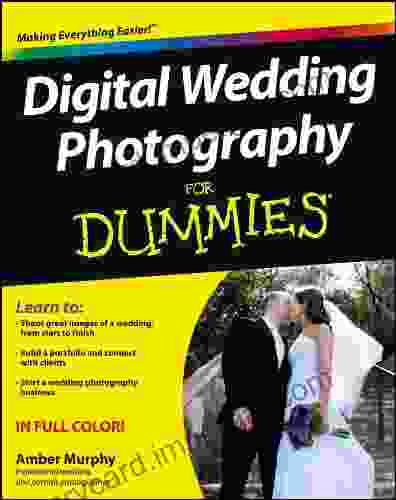Foucault For Architects: Thinkers For Architects

Michel Foucault was a French philosopher, historian, and social theorist whose work has had a profound impact on architecture and urbanism. His ideas have been used to critique the power structures that shape our built environment, and to develop new ways of thinking about the relationship between space and society.
Foucault's Key Ideas
Foucault's work is characterized by a number of key ideas, including:
- Power is not a property that is possessed by individuals or institutions, but rather a set of relations that circulate throughout society. This power is exercised through a variety of means, including surveillance, discipline, and normalization.
- Space is not a neutral container for human activity, but rather a social product that is shaped by power relations. The way that space is designed and used can have a profound impact on the way that people think and behave.
- Architecture is a political act that can be used to both reinforce and resist power relations. By understanding the power relations that shape our built environment, architects can design buildings and cities that are more just and equitable.
Foucault's Influence on Architecture
Foucault's ideas have been used by architects to critique the power structures that shape our built environment. For example, in his book Discipline and Punish, Foucault argues that the design of prisons is intended to maximize surveillance and control over inmates. This critique has led to a number of new approaches to prison design, which focus on creating more humane and rehabilitative environments.
4.6 out of 5
| Language | : | English |
| File size | : | 843 KB |
| Text-to-Speech | : | Enabled |
| Screen Reader | : | Supported |
| Enhanced typesetting | : | Enabled |
| Word Wise | : | Enabled |
| Print length | : | 196 pages |
Foucault's ideas have also been used by architects to develop new ways of thinking about the relationship between space and society. For example, in his book The Free Download of Things, Foucault argues that the way that we think about space is shaped by the power relations that are in place. This insight has led to a number of new approaches to urban planning, which focus on creating more equitable and sustainable cities.
Foucault For Architects: Thinkers For Architects
Foucault's work is essential reading for anyone interested in the relationship between architecture and society. His ideas provide a powerful framework for understanding the power structures that shape our built environment, and for developing new ways of thinking about the role of architecture in society.
Thinkers For Architects is a series of books that introduces the work of key thinkers to architects. The series is edited by Tom Dutton, and each book is written by a leading scholar in the field. The books in the series are designed to be accessible to architects of all levels of experience, and they provide a valuable to the work of some of the most important thinkers in architecture.
The book Foucault For Architects is written by David Leatherbarrow, a professor of architecture at the University of Pennsylvania. The book provides a comprehensive overview of Foucault's work, and it shows how his ideas can be applied to architecture and urbanism. The book is essential reading for anyone interested in Foucault's work, and it is a valuable resource for architects who want to understand the power structures that shape our built environment.
Michel Foucault was a brilliant thinker who has had a profound impact on architecture and urbanism. His ideas provide a powerful framework for understanding the power structures that shape our built environment, and for developing new ways of thinking about the role of architecture in society. Foucault For Architects is an essential reading for anyone interested in the relationship between architecture and society.
4.6 out of 5
| Language | : | English |
| File size | : | 843 KB |
| Text-to-Speech | : | Enabled |
| Screen Reader | : | Supported |
| Enhanced typesetting | : | Enabled |
| Word Wise | : | Enabled |
| Print length | : | 196 pages |
Do you want to contribute by writing guest posts on this blog?
Please contact us and send us a resume of previous articles that you have written.
 Book
Book Novel
Novel Page
Page Chapter
Chapter Text
Text Story
Story Genre
Genre Reader
Reader Library
Library Paperback
Paperback E-book
E-book Magazine
Magazine Newspaper
Newspaper Paragraph
Paragraph Sentence
Sentence Bookmark
Bookmark Shelf
Shelf Glossary
Glossary Bibliography
Bibliography Foreword
Foreword Preface
Preface Synopsis
Synopsis Annotation
Annotation Footnote
Footnote Manuscript
Manuscript Scroll
Scroll Codex
Codex Tome
Tome Bestseller
Bestseller Classics
Classics Library card
Library card Narrative
Narrative Biography
Biography Autobiography
Autobiography Memoir
Memoir Reference
Reference Encyclopedia
Encyclopedia Christopher Sheline
Christopher Sheline Alison Rodger
Alison Rodger Ann Johnson
Ann Johnson Amanda Prowse
Amanda Prowse Alice Miller
Alice Miller Alfonza Jackson Jr
Alfonza Jackson Jr Lewis Grizzard
Lewis Grizzard Amanda Scott
Amanda Scott Lajos Egri
Lajos Egri Alessio Muciaccia
Alessio Muciaccia Jason Gibbs
Jason Gibbs Allan T Duffin
Allan T Duffin Alice Finch
Alice Finch Alanna Rusnak
Alanna Rusnak Alessandro Carrera
Alessandro Carrera Alisa Franz
Alisa Franz Alison Maloney
Alison Maloney Frances De Talavera Berger
Frances De Talavera Berger Roy Bhaskar
Roy Bhaskar Ali Abdullatif Ahmida
Ali Abdullatif Ahmida
Light bulbAdvertise smarter! Our strategic ad space ensures maximum exposure. Reserve your spot today!

 Derrick HughesThe Transformation of Wall Street: A Comprehensive History of the Securities...
Derrick HughesThe Transformation of Wall Street: A Comprehensive History of the Securities...
 Chris ColemanFrench Officers and the Rediscovery of Roman North Africa: A Window into the...
Chris ColemanFrench Officers and the Rediscovery of Roman North Africa: A Window into the... Walter SimmonsFollow ·10.3k
Walter SimmonsFollow ·10.3k Rob FosterFollow ·3.6k
Rob FosterFollow ·3.6k Chandler WardFollow ·17.2k
Chandler WardFollow ·17.2k Kirk HayesFollow ·6.8k
Kirk HayesFollow ·6.8k Finn CoxFollow ·19.6k
Finn CoxFollow ·19.6k Stan WardFollow ·6.7k
Stan WardFollow ·6.7k Hector BlairFollow ·5k
Hector BlairFollow ·5k Mark MitchellFollow ·14k
Mark MitchellFollow ·14k

 Ignacio Hayes
Ignacio HayesUnveiling the Secret Spitfires: Britain's Hidden Civilian...
: The Untold Story of Britain's...

 Scott Parker
Scott ParkerLiving With Schizophrenia: A Father and Son's Journey
Schizophrenia is a serious...

 Ted Simmons
Ted Simmons"From Sign Up to Pass Out": The Shocking and Immersive...
Step into the...

 John Keats
John KeatsThe Development of Biographies and Philosophical...
The Alluring...

 Dan Brown
Dan BrownCapture Your Dream Wedding with Digital Wedding...
Your wedding day is...
4.6 out of 5
| Language | : | English |
| File size | : | 843 KB |
| Text-to-Speech | : | Enabled |
| Screen Reader | : | Supported |
| Enhanced typesetting | : | Enabled |
| Word Wise | : | Enabled |
| Print length | : | 196 pages |










